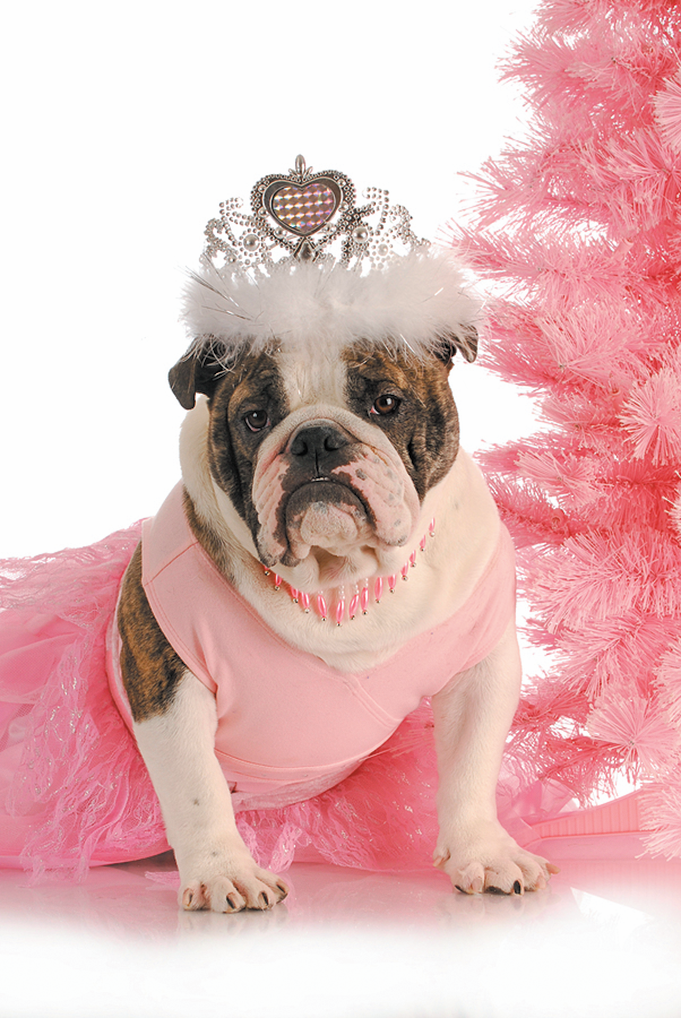People often wonder which makes a better pet — a male or a female dog. Part of it is that different personality traits are ascribed to a dog depending on its sex. Male dogs are often called goofy and playful, while female dogs are often considered more “mature” and demure. Is it true? Do male and female dogs have different types of personalities based on their sex? For some perspective, we sat down for a quick chat with the head of the Tufts Animal Behavior Clinic, board-certified veterinary behaviorist Stephanie Borns-Weil, DVM.
Tufts Your Dog: So what are the differences between male and female dogs?
Stephanie Borns-Weil, DVM, DACVB: Are we talking about intact males or neutered males?
Your Dog: Let’s start with intact males.
Dr. Borns-Weil: Intact males tend to wander more than females. Presumably that’s why they have been shown to get hit by cars more frequently. They are also more interested in territorial urine marking than females and neutered males.
Your Dog: And how are neutered males different from female dogs?
Dr. Borns-Weil: Neutered males display some of the same behaviors as intact males because of development in utero. A male dog’s brain is bathed in testosterone while he is gestating, and that affects his behavior in life even if he is castrated. So he will still be more likely than a female dog to mark territory with urine. The behavior won’t be as profoundly entrenched, but it’s still there. A neutered dog may even be attracted to and will mate with a female in season, if she will let him. No puppies will be conceived, but his instinct remains.
Your Dog: Aren’t male dogs more aggressive than their female counterparts?
Dr. Borns-Weil: We don’t really know. Some studies have claimed that most bites occur from intact male dogs, but there are many confounders. A notable one is that people are unlikely to observe the sex, much less the neuter status, of the dog that is biting them; folks are not likely to look underneath a dog at that very moment. The thinking is that if a dog is biting it must be male, but one study suggested that spayed females are more aggressive than either intact or neutered males.
Your Dog: But female dogs are more nurturing, right?
Dr. Borns-Weil: When females are expecting puppies, a whole cascade of nesting and nurturing behaviors emerge that males don’t have. It’s hormonally influenced. But outside of pregnancy and caring for their young, females cannot be said to be more nurturing than males. All dogs have attentive, nurturing behaviors toward people to some degree. That’s 30,000 years of socializing with humans at work. Affection toward people is not a sexually dimorphic behavior.
Interestingly, as a species, male wolves are more nurturing to their own young than male dogs. Male dogs are promiscuous. They mate with females but don’t help rear their young. Male wolves mate for life and live in family groups with the mother and their offspring until the pups become adults. They are very active, protective fathers.
Your Dog: Okay, but aren’t there other personality differences? Aren’t male dogs more playful, while female dogs are more cooperative, easier to train and better able to grasp the ways of the household?
Dr. Borns-Weil: Those are qualities that people often attribute to male and female dogs based on their own notions of what a male and a female are supposed to be, but research has not born out those assumptions. In fact, if someone finds that their male dog acts in a way that they think is male or that their female dog acts in a way that they think is female, it may be because they expect it. It becomes a self-fulfilling prophecy.
Your Dog: What do you mean?
Dr. Borns-Weil: Let’s say you have a female dog that you feel should act demurely, daintily, because she is female. You may end up rewarding that behavior. The rewards don’t have to come in the form of food treats or extra petting. They can come more subtly, in the form of overall approval of a pet. Once a dog learns what behavior earns her approbation, she will be more likely to engage in that behavior because it feels good to be approved of by the person taking care of her.
Your Dog: So there’s no point to trying to choose a dog based on sex?
Dr. Borns-Weil: In most cases I would say not particularly. Better to determine if the dog seems to have a personality and temperament that would be a good fit in your household. Those things are much more divorced from a dog’s sex than many people think.





